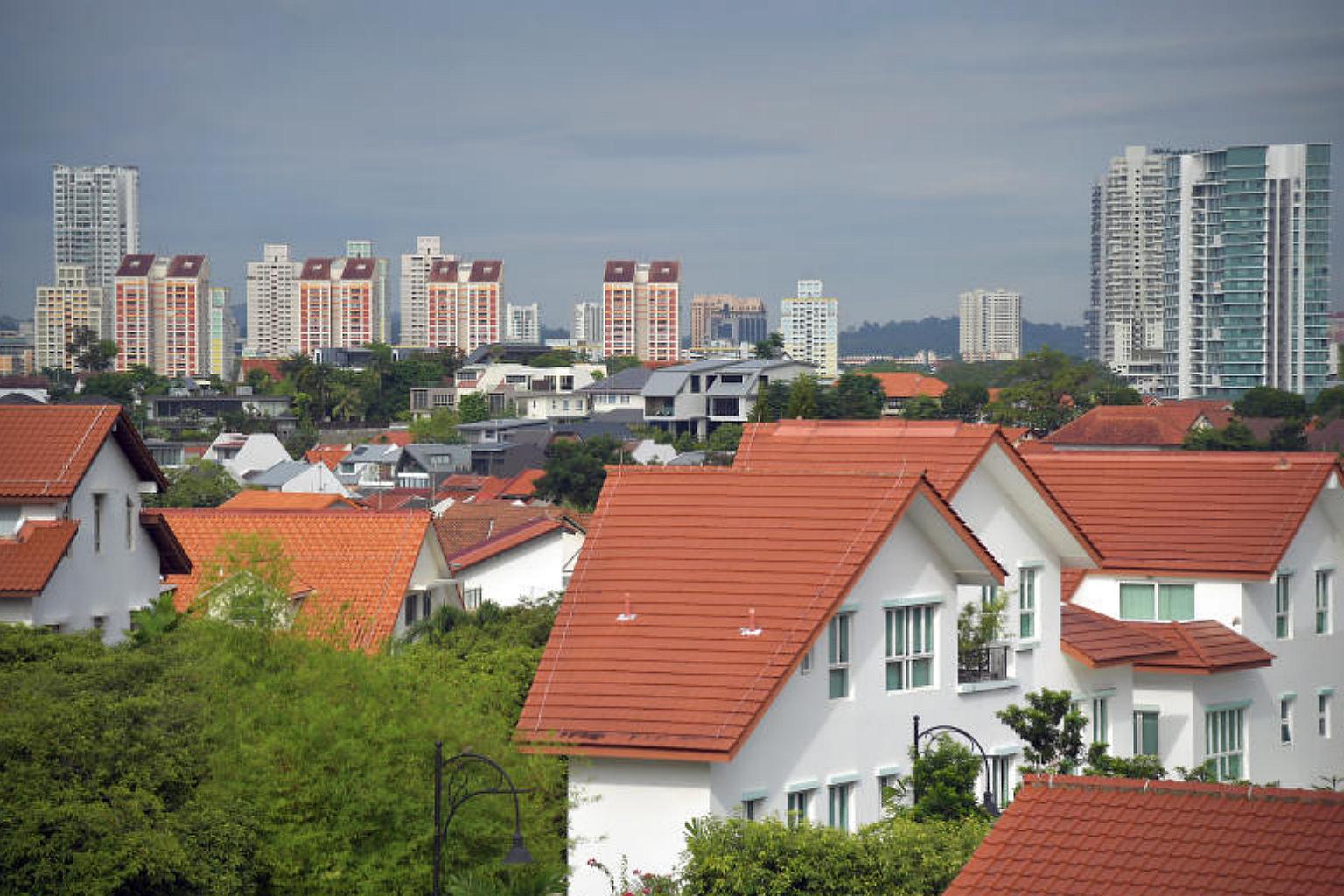New study finds clear divide among social classes in Singapore
Sign up now: Get ST's newsletters delivered to your inbox

On average, Singaporeans who live in public housing have fewer than one friend who lives in private housing.
PHOTO: EPA-EFE
SINGAPORE - The sharpest social divisions in Singapore may now be based on class, instead of race or religion, a study released on Thursday (Dec 28) suggests.
The Institute of Policy Studies' (IPS) Study On Social Capital In Singapore shows that on average, Singaporeans who live in public housing have fewer than one friend who lives in private housing.
People who study in elite schools also tend to be less close to those in non-elite schools, and vice versa.
About 3,000 Singapore citizens and permanent residents were interviewed and asked to name the people they have ties with for the study, which is the first of its kind on such a scale here.
Researchers said the findings suggest a clear class divide in Singapore. They called for policies that encourage more mixing along class lines to mitigate this trend.
"We have shifted from a society based on race to one based also on class," said National University of Singapore (NUS) sociologist Vincent Chua, one of the study's three researchers.
"We've done a pretty good job in fostering multiculturalism and mixing between ethnic groups, but maybe the next step now is to increase efforts to increase mixing between class groups," he added.

IPS deputy director Gillian Koh and NUS sociologist Tan Ern Ser also worked on the study, which was supported by the Ministry of Culture, Community and Youth.
From January to July last year, respondents were asked about the people in their social networks, including who they discussed important matters with, or confided in when they were feeling down.
They were also asked to name who they played sports with, got help from for household matters such as collecting mail, and who they spent the most time with on social activities.
They were then asked to give details about the people they named, such as age, race, and whether they considered them to have attended an "elite" school.
Results show that a typical Singaporean has an average of 5.8 acquaintances and friends in his social network.
But while people were able to easily name a friend of a different gender or age, and even race or religion, they more rarely named someone from another class.
This preference for those from their own kind of class was strong even after researchers took into account uneven group sizes - about 80 per cent of Singaporeans live in public flats, so there are fewer private-housing dwellers for them to meet.
Despite the vast majority of Singaporeans living in public housing, private-home dwellers had more ties with others who lived in private homes than with those who lived in public flats.
Said Dr Chua: "Even if you give people equal opportunities, they will still gravitate to hang out with their own kind. So we have to think of ways to disrupt this."
The researchers suggested that Singaporeans flock to their own kind because they feel they cannot connect with others due to cultural differences.
For instance, those from outside their circle may speak English differently, or have different social norms and hobbies.
People may also feel those from other classes are not interested in socialising with them, said the researchers in a statement.
"People like to be with people like themselves," said Dr Chua.
National identity
Another finding from the research was that those with more diverse networks tend to have stronger feelings of national pride and trust towards people from other races, religions or countries.
Having more friends from different backgrounds broadens their world view, said the researchers.
This helps people think in terms of the nation, rather than only about their own group and its interests.
The researchers said strengthening the national identity is one reason people should be encouraged to interact more with others unlike themselves.
Another reason is to make sure that Singapore remains an egalitarian society.
Said NUS' Professor Tan: "Race and religion are potent divisions which we cannot ignore, but the class divide may be happening because of globalisation, which leads to greater inequality."
He added: "What it means is that we should continue to equalise opportunities and make sure everyone is brought up to speed in terms of skills training. We don't want to be a society where the class divide and social inequality become wider."


